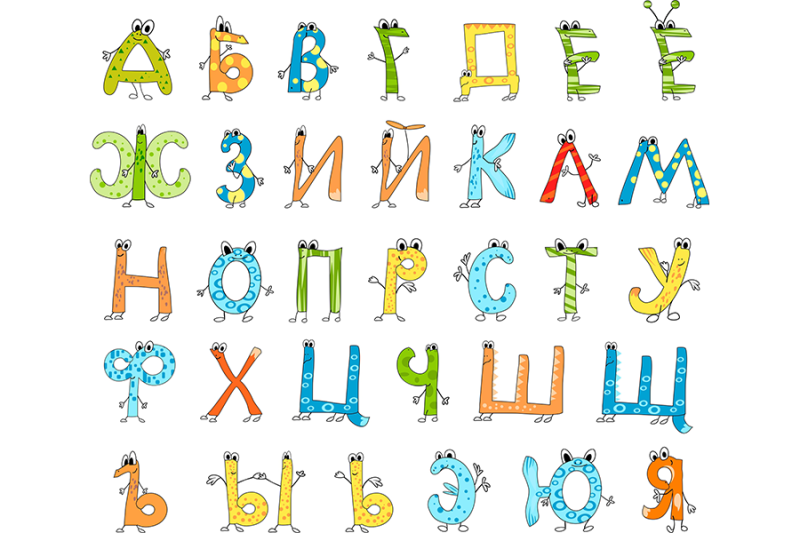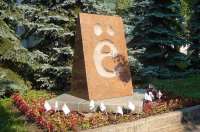Historical note
Indeed, the origins of the letter Ы, just like why and when February 2 became known as the letter's birthday, are shrouded in mystery. Though the Cyrillic script, which the Russian language uses, is derived mostly from Greek, the letter ы takes it roots from the Old Church Slavonic language where it was the compound letter called еры (yery or eru) made up of ъ and і or и. The modern symbol Ы appeared only in the late 14th century.
Whether the letter Ы is solely a variant of the sound и or its own thing is still an ongoing debate, with one of its stumbling blocks being the presence (or absence) of words starting with Ы in the Russian language.
How to pronounce it
The Ы sound is one of the hardest sounds to pronounce for many non-native speakers, one of the reasons being that they struggle to find a sound like that in their own language. Therefore, most teachers opt to turn to something familiar – be it a different sound (or several), or even a situation to imitate – when teaching students to pronounce the sound.
The Russian teachers at ITMO’s Foreign Language Training Center, who help our prospective students acquire the necessary Russian skills for their studies in Russia, know a trick or two that can help you master this sound. For instance, Natalia Kondrashova recommends doing this:
“You need to pronounce the Russian letter У [pronounced like the vowel in boot] and at the same time stretch out your lips to the side as if you’re pronouncing the Russian letter И [pronounced like the vowel in feet].”
And her fellow lecturer Maria Semina has a slightly different lifehack (a fun one, I must say) for you to try:
“Make a loud deep noise somewhere from the inside while smiling – or imagine that somebody is punching you in the stomach.”
You can find even more useful tricks and learn more about the teachers in this interview.
Ы today
Ы is the 29th letter of the Russian alphabet; it also appears in the Belarusian alphabet and in Cyrillic-based variants of Tatar and Kazakh. Although it’s a common belief that there are no native Russian words that begin with Ы (hence, alphabet charts often feature only the lowercase version without an accompanying illustration), dictionaries feature several exceptions like:
-
ышник (yshnik) – noun: a respectable person in society (slang);
-
ыкать (ykat) – verb: to pronounce the sound ы;
-
ыканье (ykanie) – noun: the process of pronouncing the letter ы.
The majority of words starting with Ы you can see or hear in Russian, however, are toponyms, meaning the names of geographical features, such as Ыб (Yb) – a rural locality in the Komi Republic, or other words borrowed from other languages (ыргак (yrgak) – a hook or a hanger in Tatar).
Ы in pop culture
What is particularly interesting about the letter Ы is how it has found its way into art and culture, despite being so outshone by other letters.
-
Over the years, there have been several monuments erected in honor of the letter: an art object in Syktyvkar (the city with two Ы in its name) and an installation in St. Petersburg;
-
The letter made its appearance on screen, too. Leonid Gaidai's Operation Y and Shurik's Other Adventures features the letter in the title; in the film, characters pick the letter "so that no one can work it out!” After the release of Kin-dza-dza! by Georgiy Daneliya, the letter began particularly often being used to express some strong albeit nonverbal emotions; for some time, ыыы became the Russian version of LOL.
-
In the literary world, the letter became the name of the mythical creature вепрь Ы (wild boar Y) – a ferocious creature that can’t be killed with iron, but only with bone – in Arkady and Boris Strugatsky's Hard to Be a God (1964).
If you want to explore the Russian language further, check out our stories about the origins of the Cyrillic script, the unusual role of the letter ё in Russian, and other Russian language features.




